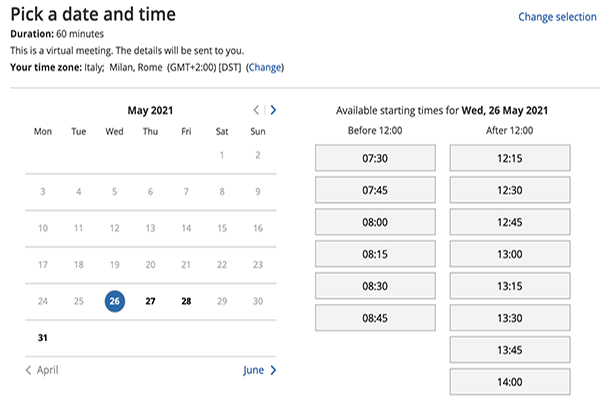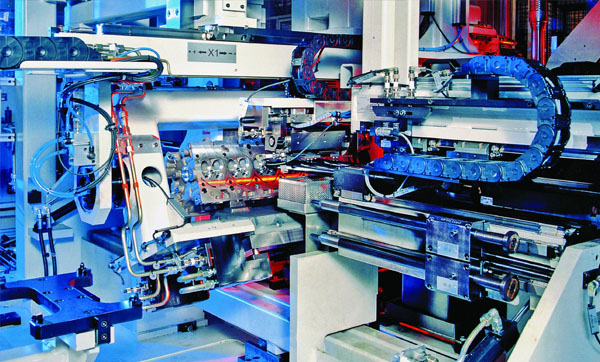SUPERVISORS TRAINING
OUR PLANT PERFORMANCES WERE TERRIBLES, BUT NOW THEY ARE OK and IMPROVING
HOW WE DID IT? WE TAUGHT OUR SUPERVISORS THEIR MISSING COMPETENCIES!
Some supervisors you have promoted in the role may not be able to perform at their best.
Despite promising expectations, they are unwilling or unable to do so simply because they need more training and experience.
Some may still need to be fully mature to manage the teams you entrusted to them; others may need to be sufficiently trained in lean and work organization methodologies.
Some of them could also risk falling under the influence of the old generation, which still thinks in the old way.
The difficulties of covering the Supervisor role
Exercising the supervisor's role in an organization is a much more complicated task today than it was 20 years ago. The “command and control” style can no longer work in an environment where workers have long acquired their rights and dignity.
Today, a supervisor must have a participatory and non-coercive people management style.
On top of that, he must have solid knowledge and application of the kaizen principles and lean manufacturing methodologies.
For reasons dictated by the rush to fill an open position, some supervisors are appointed to the new role without the necessary preparation. This situation inevitably creates problems of many kinds, which ultimately cause negative industrial performances.
This problem can be effectively contrasted by enrolling the new supervisors in a specific and solid training program. Still, they have three main issues to overcome before fully developing the supervisor's talents:
- Supervisors' lack of time
- Difficulty finding suitable trainers
- Lack of customization in the training plan about the company sector and role requirements.
The challenge to develop the supervisors' competencies
A supervisor must integrate a complex set of competencies and skills, and he must gain mastery of them at a sufficient capability level.
Here below is a non-exhaustive list of competencies and skills:
- Establish stimulating and challenging objectives
- Motivate to achieve the established performance
- Inspire and accelerate continuous improvement
- Utilize lean methodologies
- Know the company standards work, and procedures
- To be able to teach the company standards and the procedures
- To be a coach capable of developing people's performances
As you can see, the list is long, and the skills to be acquired are rather complex; not all candidates for the supervisor role have them in the baggage of their private and professional life experience.
They must build them by themselves, step by step, day after day, taking risks and making mistakes that the company will pay for.
YOUR COMPANY ECONOMIC RESULTS DEPENDS ON THE PERFORMANCES OF YOUR SUPERVISORS; IT IS FOR THIS REASON THAT IT’S NECESSARY TO DEVELOP ALL THEIR TALENTS AND POTENTIAL ...
SUPERVISORS TRAINING PROGRAM IS THE MOST EFFECTIVE AND ECONOMICAL SOLUTION!
The KAIZEN COACH INTERNATIONAL
SUPERVISORS TRAINING PROGRAM
(Mentoring for Supervisors)
The training program we developed allows us to transfer all the experience of our mentors to your supervisors, increasing exponentially and very quickly their level of managerial skills.
Investing in the program pays off immediately. It makes your supervisors operate as if they were already experts and finally allows them to achieve the performances the business needs quickly.
For which types of supervisors is this program?
This program is explicitly aimed at CHIEF SUPERVISORS, FRONT LINE SUPERVISORS, FUNCTIONAL SUPERVISORS, and PROJECTS SUPERVISORS in the following fields: Mechanics industry, Food & Beverages industry, and Services Industry. (For other types of industries, the availability of this program is linked to specific developments)
How is it possible to train supervisors more quickly?
Our training methodology adds to our already advanced training modules (based on our team's experience in the industrial areas of mechanics, agribusiness, and service) the supercharging factor of individual mentoring for each supervisor.
The training modules, which are already very advanced, are improved thanks to our mentors' continuous assistance, which means that very good results can be obtained relatively quickly.
The training modules are adapted to the needs of the client. Some clients need to train their supervisors quickly to better fill sensitive and vital positions in the company; others can afford a longer training time.
The time required for each supervisor to reach an optimal level of acquired competencies & skills can be estimated over a period ranging from 2 to 3 months, depending on the case.
What is mentoring?
Mentoring is a teaching process whereby a person with particular skills, experience, and specific knowledge, transfers his knowledge to another less expert person (usually called a "protégé") by accompanying them until they acquire operational competencies and skills equal to those of their mentor.
Mentoring is based on a strong personal relationship of trust between the mentor and the protégé.
In mentoring, the mentor's transfer of knowledge and skills takes place through sharing his professional history, knowledge relating to the professional sector in which he has evolved, and the methodologies he can teach.
The KCI training and mentoring system for supervisors

According to the KCI model, managerial performance is the resulting gestalt that emerges from the individual development on three bearing axes; their development gives rise to different levels of performance depending on the level of skills acquired in each ax.
The three axes concept:
Axis Y: Represents the character attitudes of the person; this axis is developed through the assimilation of the specific principles and concepts of the kaizen philosophy and the company values grid.
Axis X: Represents the knowledge and ability to implement particular business methodologies; this axis is developed by learning and applying the business and lean methods.
Axis Z: Represents the ability to manage oneself and others, creating motivation, commitment, team building, etc. This axis is developed by learning and applying communication and neuroscience methodologies.
Axe Y : Assimilation of behaviors relating to Kaizen Principles and Concepts
To lead a team, it is, above all, necessary to have good predispositions and attitudes. The reference model for creating a suitable supervisor's attitude and behaviors in the workplace is based on the 3 Kaizen principles and 7 concepts.
Kaizen's principles and concepts allow supervisors never to lose their compass and allow them to make the right decisions constantly.
In this axis, are also integrated the values and the mission of the company.
Supervisors Training Modules Axe Y Methodologies
MODULE 1 - LEADERSHIP
Why this module? A supervisor is a leader, and a leader is a leader only if he has followers. Without followers, there is no leader and no supervisor.
Benefits:
- So you can trust that if standards, communication, and orders are given, they can be vehiculated through supervisors with a following.
- So you can communicate your company policy properly through leaders that can transmit it.
MODULE 2 - LEAN PRINCIPLES
Why this module? Your supervisors have to have an industrial philosophy to which to refer. If they don't have one, how can they know how to manage in the best manner the department assigned to them? How can they always know what is right to do with the supervise process?
Benefits:
- Your entire company can think and behave with the same industrial culture. The same set of principles and concepts. This creates a shared company culture.
- Your supervisors can move from department to department because they manage accordingly with fixed principles and concepts. Only the processes and their technicality can change.
MODULE 3 - LEAN CONCEPTS
Why this module? Your supervisors must have a set of industrial concepts they can use in every situation.
Benefits:
- In every situation, your entire team of supervisors will answer the upcoming challenges with a set of concepts that will permit them to find the best possible solutions.
- When they share information, they can agree on solutions because they share the same concepts.
Axe X : Acquisition of lean methodologies specific to the company's industrial sector
Each industry sector uses its particular processes; in some cases, the added value is mainly aggregated by human activity. In other cases, it is mainly achieved by automatic or semi-automatic equipment. Sometimes, there is a more or less proportionate mix of the 2.
Our supervisors' training program consists of teaching and applying only lean methodologies that serve the company's particular industry sector well.
MODULE 4 - SPECIAL INDUSTRY FIELD LEAN METHODOLOGIES
Why this module? Every industry has its own special needs. Accordingly, with the company management, we will prepare the modules needed to address particular problems in your company's field.
Benefits:
- You can boost to the roof your company performance through specific “to your industry” Lean knowledge acquisition by your supervisors.
- Another customization layer is added by tailoring the training to solve your company-specific problems.
MODULE 5 - KPI’s ALIGNMENT SYSTEM
Why this module? Shift performance is the cumulation of hour-per-hour performances. Supervisors must be aware of deviations during the shift and react, readjusting organization and means of production.
Benefits:
- With this system, you are sure that all necessary to achieve the required performance will be done as soon as necessary with the best ratio of resources consumption.
- Your company will have the best possible performance always.
MODULE 6 - PROBLEM-SOLVING
Why this module? Because supervisors have to solve efficiently different types of problems during their day. In every company, there are four types of problems, and every type has to have its approach to be solved.
Benefits:
- So your company will ensure all the problems are tackled correctly and solved.
- So your company can be assured of being on the path of continuous improvement.
MODULE 7 - 5S
Why this module? Your supervisors need to learn 5S because it is a fundamental methodology to create an organized workplace where people want to work.
Benefits:
- It will give a very professional and beautiful look at your operations
- Collaborators will be very glad to contribute with their experience building their 5S workplace.
MODULE 8 - STANDARD WORK
Why this module? The industry is not an artistic lab, the aim is to get repetitive processes to produce a repetitive amount of products at the same quality level. A supervisor has to understand the meaning of standard and its derivative implication.
Benefits:
- If the concept of standard is steady in the supervisors' minds, we will have them and collaborators strive to constantly achieve the required standard performances.
- It will be easy to settle the culture of standards and standards constant improvements.
Axe Z : Soft Skills Development
A supervisor must know how to communicate to induce in the people he leads the right attitude and behavior; he will also need help to lead a group to evolve into a team that produces exceptional results.
A team leader must also know the art of feedback, and how to use it in different situations his role involves teaching, coaching, and motivation. Our team supervisors' training program includes a module dedicated to these skills.
MODULE 9 - TEAM BUILDING
Why this module? A supervisor is a team builder and a leader, he gets the daily needed performance from his shift making his collaborators work in harmony and with a sense of purpose.
Benefits:
- So your collaborators are motivated to give their best
- Less or no conflicts between collaborators and hierarchical organization
MODULE 10 - COMMUNICATION
Why this module? The supervisor has to have the competency to listen actively and to answer his collaborators' arguments and ideas; to do that, he/she has to utilize the most efficient language.
Benefits:
- So you can be sure that communication with collaborators is shared in the most appropriate way<
- Less or no conflicts with collaborators, more participation in the company goals achievement dynamics.
MODULE 11 - NEGOTIATION
Why this module? Supervisors often negotiate with collaborators about vacations, permissions, personal performances, etc.
Benefits:
- So you can be sure they don't negotiate against the company's interest because they are not good negotiators.
- Your company can be sure that we are managing human resources in the best interests of both sides.
MODULE 12 - COACHING
Why this module? Your supervisors have to be able to stimulate their collaborator's development. Coaching is the methodology to inspire collaborators and guide them to improve their thinking, behaviors, and competencies.
Benefits:
- So your company will be in a neverending process of developing its internal management resources.
- So if some supervisors or middle managers leave the company, you will have a ready replacement for the vacant place.
Our mentors do not come from academia!
With this statement, we do not mean that we hate the academic environment but simply that our team comprises people with real working experience in the industrial environment. Our mentors are professionals who have held leadership positions in renowned companies.
They have a very respectable CV from which comes the proof that their knowledge of the taught methodologies is theoretical and based on the day-by-day practice they have successfully done in the companies where they have worked.
Thanks to their teaching, a supervisor also receives all the baggage of experiences they have had in the real world of work.
How does our mentoring method work?
(Learning by Doing)

Our training method is based on learning by doing. Depending on the skills analysis of the person to be trained and the type of KPIs the company needs to improve, a training course is developed and divided into three macro-areas. Kaizen methodologies, lean methodologies, soft skills.
Once the supervisor manager has established and validated the training plan, the mentor starts with his protégé by carrying out a routine of regular meetings, including the following activities.
- Theory sessions are conducted individually or with other participants from the same company or KCI client companies. During these sessions, the theory about the skills to be learned will be explained.
- Practical application of the learned methodologies. During these sessions, the mentor will decide with the supervisor where and how to start implementing the methodologies learned during the theory sessions. The practice takes place using the context and the formula of a workshop. In a workshop, we apply the theory to transform real problematic situations; the workshops have exceptional educating and training power, and it is for this reason that we declare that we train supervisors even if they do not have time to train. Indeed, they work and train at the same time!
- Mentoring and coaching sessions for monitoring the activities' implementation. During these sessions, we will constantly analyze what worked, what did not, and what needs to be done as an extra step to get the expected results.
- Strategic sessions of alignment and training activities are relaunching with the supervisor’s manager. These meetings are done with three heads. (the mentor, the person who benefits from the program, and his manager)
The program takes place 40% Online and 60% On Site.

Following the COVID-19 pandemic, we have adapted our supervisors' training programs to take place mainly online.
Business tools such as Microsoft Teams or Zoom are utilized as the backbone for video and audio communication and integrated with specific applications for online learning.
- The online training material should be published online on your IT learning platforms. We can build a customized one for your company if you still need one.
- The files and photos concerning the workshop activities carried out within the company will remain on your servers or computers, thus ensuring maximum confidentiality.
- 20% of the training program is conducted on-site (in the company). This is necessary to verify the physical improvements and validate the level of competence achieved in person. Site visits/missions have a minimum duration of 4 hours.
Benefits of the formula 40% Online 60% OnSite

Planning sessions starting from 1h duration.
The Mentoring sessions are made in chunks of 1 hour, two hours, three hours, or four hours. the impact on the work schedule of the trained supervisor is reduced to a minimum. Appointments are made online on the mentor's agenda without email exchanges.

More flexible schedules
Many of our consultants' activities today take place online, which makes their schedule much more flexible, as it is not tied to geographic constraints; in this way, they may eventually become available even 24 hours after a session request.

Lower Travel Expenses
Taking place mainly online, there are no hotel, catering, or travel costs payable by the client; the only exception is the company site visits.
Our mentoring program for supervisors is designed for the following industry sectors.

Food & Beverage Industry
In this program, the supervisor, in addition to learning the kaizen philosophy and the soft skills for workgroups management, supervisors will learn the lean reference methodologies for the Food & Beverage industry and, precisely, the Lean TPM model.

Mechanical Industry
In this program, the supervisor, in addition to learning the kaizen philosophy and the soft skills for workgroup management, supervisors will learn the lean reference methodologies for the Mechanic Industry and, precisely, the Lean JIT model.

Offices and Services Industry
In this program, the supervisor, in addition to learning the kaizen philosophy and soft skills for workgroup management, will learn the lean reference methodologies for the Services Industry and, precisely, the Lean TOM model.
Receive the Supervisors' Training Program Specific To Your Industry
